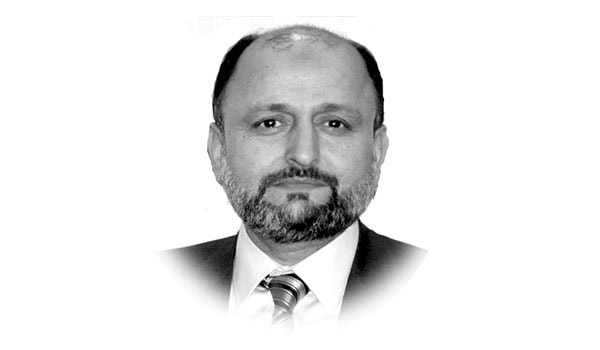Only Islamic banking is not Islamic finance
Universities should have developed projects, internships, or FYPs, as a part of requirement to complete degree programs to spend a few weeks in Madaris to impart contemporary education to the students enrolled in Madaris.
Besides other core expertise in religious responsibilities, I personally noticed excellence in Madaris in calligraphy, poetry and prose writing.
If universities had proposed internship programs or can start even now they can significantly contribute to neutralise indoctrination and assimilate students of Madaris to the mainstream in the society.
Anyhow, I want to draw attention to the modifications in the regulations for wakf properties and institutions established in wakf properties or being governed by the proceeds of wakf properties.
I am in favour of registration and regulations for appropriate and transparent administration of Madaris; but something which does not exist in modern-day educational institutions why that is being introduced in the latest wakf regulations for Madaris e.g.
appointment of administrator from outside the madrassa or any institution covered under Wakf Act 2020.
The purpose of transparency, diversity, merit and compliance can be achieved through broadening the governing board of such institutions.
There can be several external members such as a representative of the local government, education department, police, district administration, a representative from another madrassa and so on as we do in regulatory bodies of universities.
But how can we justify the appointment of an administrator by the government? It is simply an effort to curb the autonomy of Madaris when the government is not contributing even a penny to Madaris for their expenses.
Government certainly has the right to ensure rule of law in every operation taking place in the country but that can be achieved without curtailing basic rights of any institution or an individual.
Wakf properties are usually situated in the centre of cities throughout the country with exceptional commercial potential.
Islamic finance experts and institutions should develop a specific framework, known as special purpose vehicle (SPV), to issue wakf sukuk for the development and prosperity of those who are linked with wakf properties and institutions.
Relevant experts can utilise the proposal to launch wakf sukuk to modernise wakf properties and institutions.
Wakf properties have the potential to produce sustained and respectable income to help further the growth needs of relevant communities and those who invest in proposed Islamic bonds.
Zakat and ushr budgets and heads indicate significant importance of this component of Islamic finance.
Last year budgets of three provinces (KP, Punjab and Sindh) collectively remained around 8318 million rupees, which is a significant amount collected through official channels.
According to a report published in 2013 the amount of privately distributed zakat not channelled through any government institution is three times higher than the officially collected amount, it means approximately 32000 million rupees disbursed this year as zakat making it a huge contribution for the social uplift of the disadvantaged population.
The budget documents of these provinces suggest that receipts from zakat and ushr are distributed in four main areas including guzara allowances (social welfare), healthcare, educational stipends (Deeni Madaris and technical education) and marriage assistance.
We never thought of any impact analysis of this extensive disbursement or alternative effective and efficient model.
There is a significant need to authenticate existing practices of zakat and ushr collections and distributions because mostly people avoid giving zakat through official channels.
Academicians have to make it a priority to study this important segment of Islamic finance to enhance the confidence of masses on the system.
We also need to facilitate the government to announce any scheme such as tax benefits to give zakat and ushr through official channels for greater transparency and social impact.
We should extend our endeavours beyond Islamic banking to explore more avenues to strengthen Islamic finance to evolve Islamic economic infrastructure for the stability and sustainability of our society.
—Concluded.
—The writer is Associate Professor Management Sciences, Head, Centre of Islamic Finance, COMSATS University (CUI) Lahore Campus.










